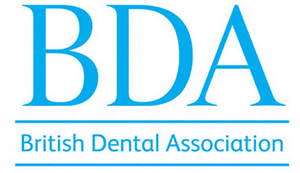Request an appointment
For dental appointments, please fill in the form below and we will call you back or email you to confirm your appointment.
Cold sores
What is a cold sore?
A cold sore is a small, painful raised area of small, fluid-filled blisters, usually where the lip joins the surrounding skin. The blisters are painful and dry up to make a yellow crust which gradually heals in a few days. Cold sores are usually found on the lips but you can get them in other places, such as in the nostrils, on the nose or around the outside of the mouth. Cold sores tend to last 5 to 7 days and can keep coming back. Most people only have them once or twice a year.
How do I get them?
Cold sores are caused by a virus (a ‘Herpes Simplex’ virus). You first get this virus in childhood or early adulthood, and it may cause a fever and mouth ulcers (called ‘primary herpetic gingivestomatitis’). About a third of people who get this ‘primary’ infection go on to develop cold sores in later life. However, many people with cold sores did not get this primary infection.
What brings on the cold sores?
Cold sores usually appear when people are ill with something else, for example with a cold (hence the name) or flu. Sunlight and ultra-violet light can often bring on an attack of cold sores, and occasionally women find that they develop cold sores at particular stages of their menstrual cycle.
Are they infectious?
Yes. Cold sores are infectious and the infecting virus can be passed to other people by close contact (such as kissing). A cold sore is most infectious when it is blistering. It is important to try and avoid touching cold sores as you can pass the virus on to other people’s hands and even, very rarely, to your own eyes. Avoid squeezing, pinching or pricking the cold sore as this can spread the infection.
Can they be treated?
Yes. Antiviral creams, such as aciclovir and penciclovir, ease the pain and blistering and help the sores heal more quickly. You can buy aciclovir from a chemist, but penciclovir has to be prescribed by your doctor. Both these creams should be applied as early as possible when the cold sore starts to develop and should be applied regularly.
How can I avoid getting one?
Once you have had the virus it remains with you and there is little you can do to avoid an attack. How often the cold sores appear varies from person to person. However, if sunlight seems to bring on your cold sores, it is sensible to put sunblock on your lips when going out into strong sunlight.
If I have a cold sore should I see my doctor?
Cold sores generally clear up without treatment in about a week. However, if you have a health condition that has weakened your immune system or the sores don’t heal within two weeks on their own, see your doctor. If you often get attacks, your doctor may be able to prescribe an antiviral medication to treat the sores.
I have a cold sore but am due to see my dentist. Will they still be able to treat me?
If you have a cold sore and are due to visit your dentist or hygienist, check with them first. Some dentists prefer not to treat patients with active cold sores as the affected area may be painful, and may crack and bleed during dental treatment.
What if I’m breast-feeding?
Breast-feeding shouldn’t be stopped. However, don’t kiss your baby, especially near the mouth or eyes, while you have an active sore as this may pass the infection to your baby.
Can you only get cold sores around the mouth or can you get them on other parts of the body?
The virus that causes cold sores can also cause similar diseases on other parts of the body (for example, the fingers, eyes and genitals). It is therefore important not to touch cold sores as you may accidentally spread the virus to other parts of your body.
Source: British Dental Health Foundation
Book an appointment at Dentistry For You
To start your journey to a new smile book an appointment with us today.
Why Dentistry For You?
- Established over 35 Years
- NHS & private dental care
- High quality treatments provided by experienced dentists
- In house quality assurance programme
- Over 2700 patient reviews across all locations
- All our practices are wheelchair friendly
Patient satisfaction is very important to us





